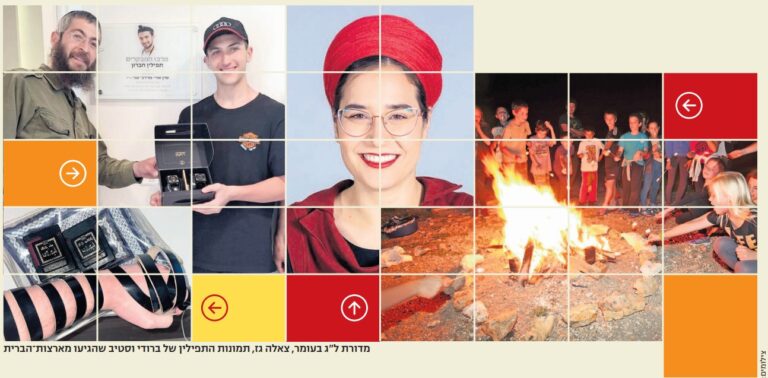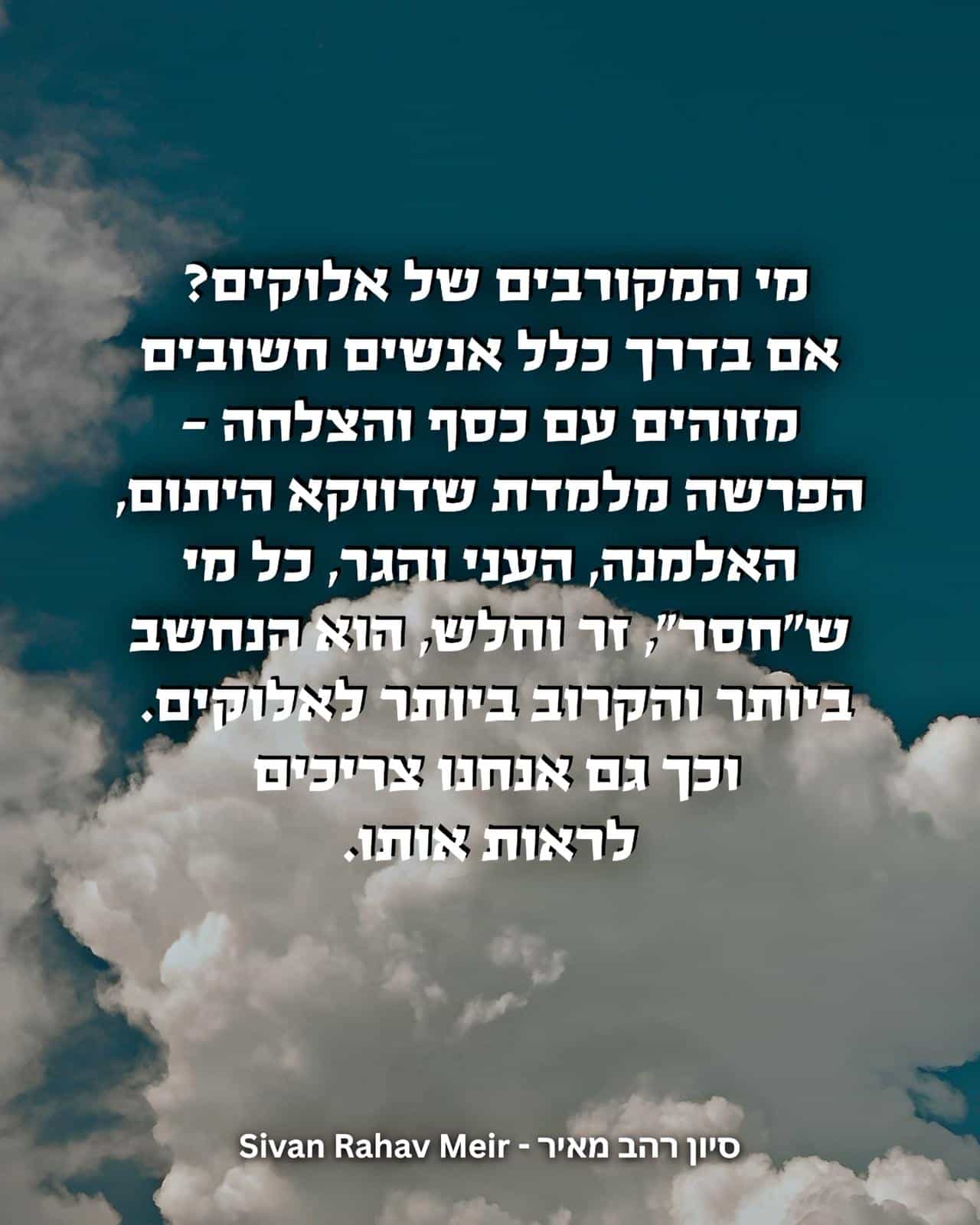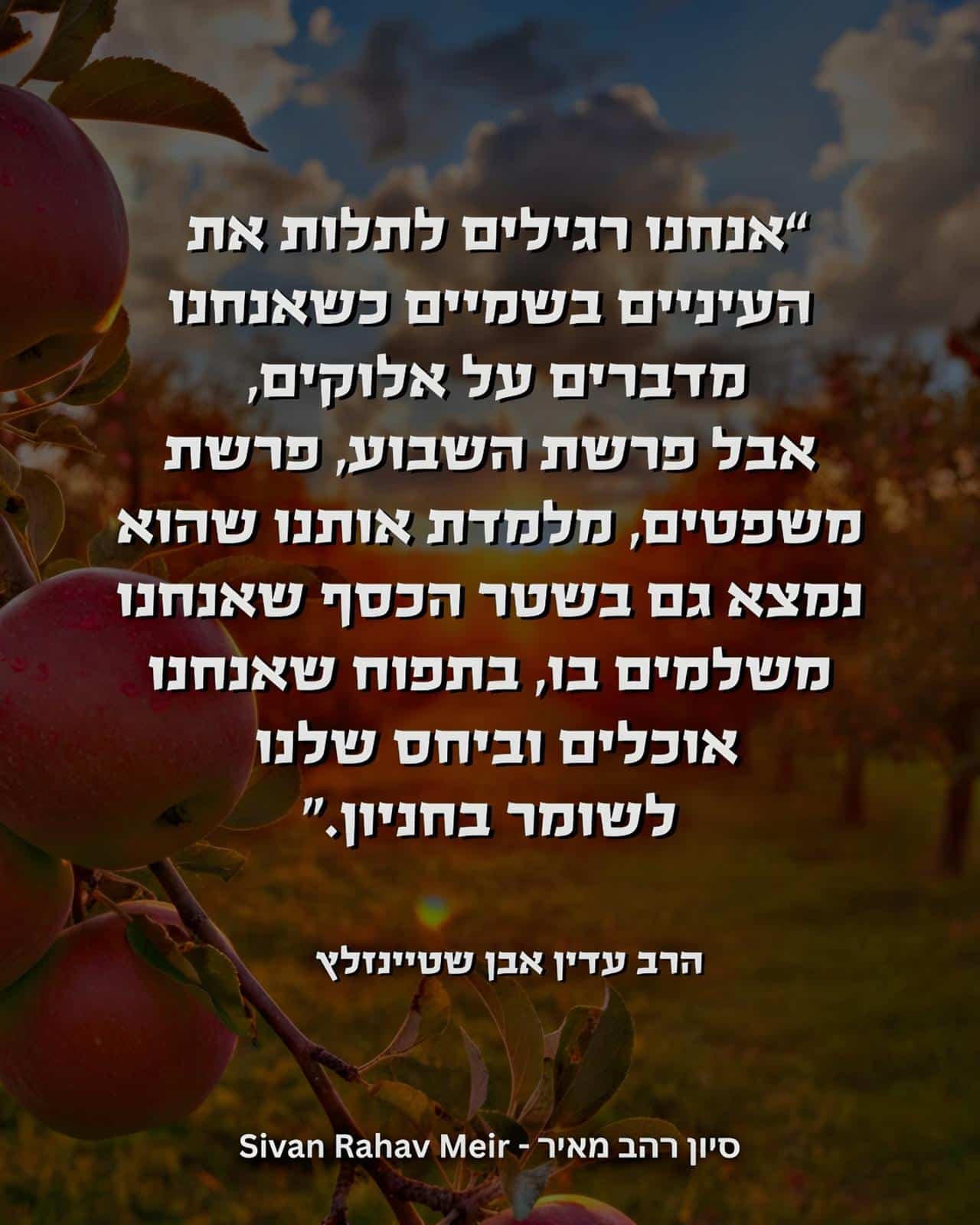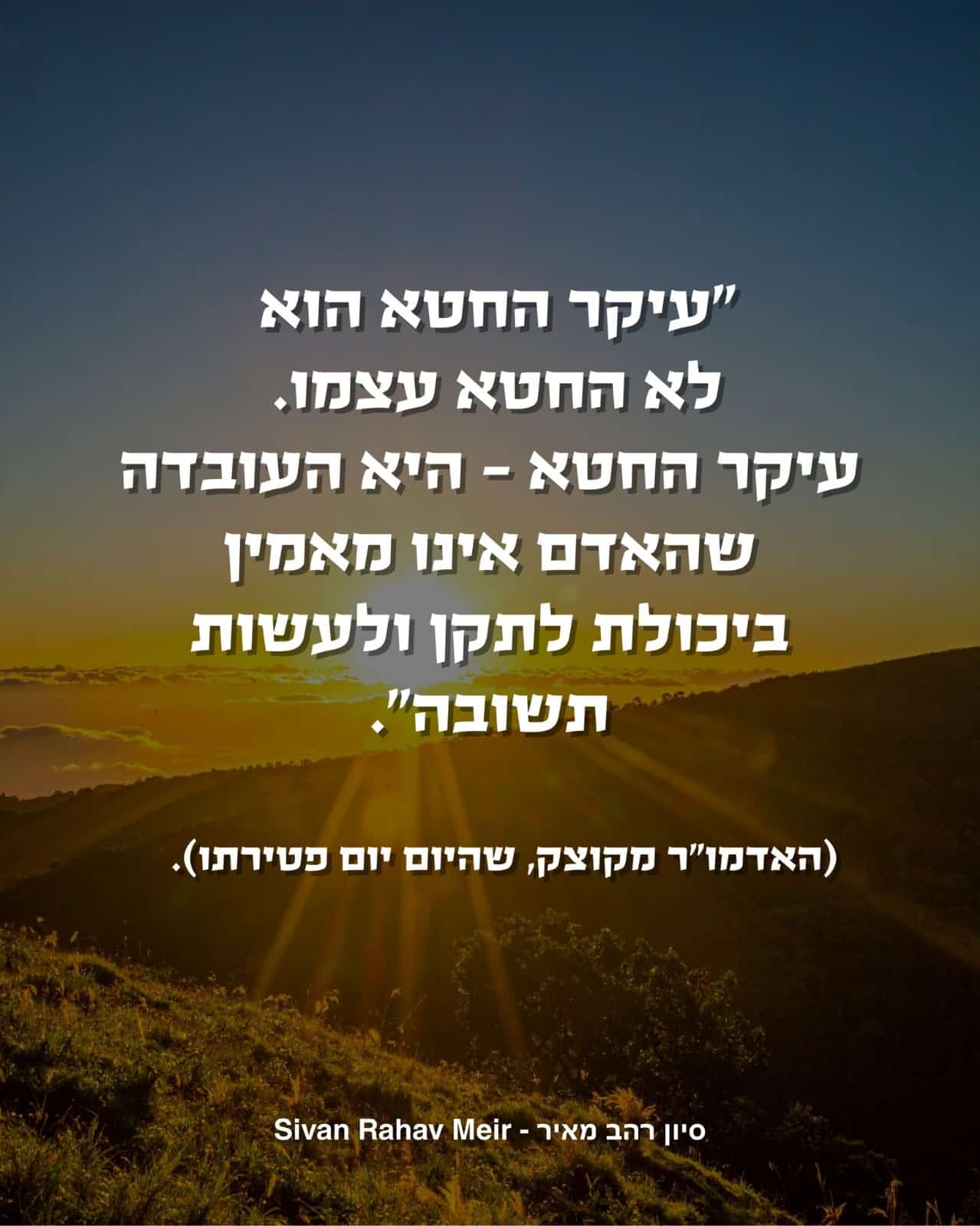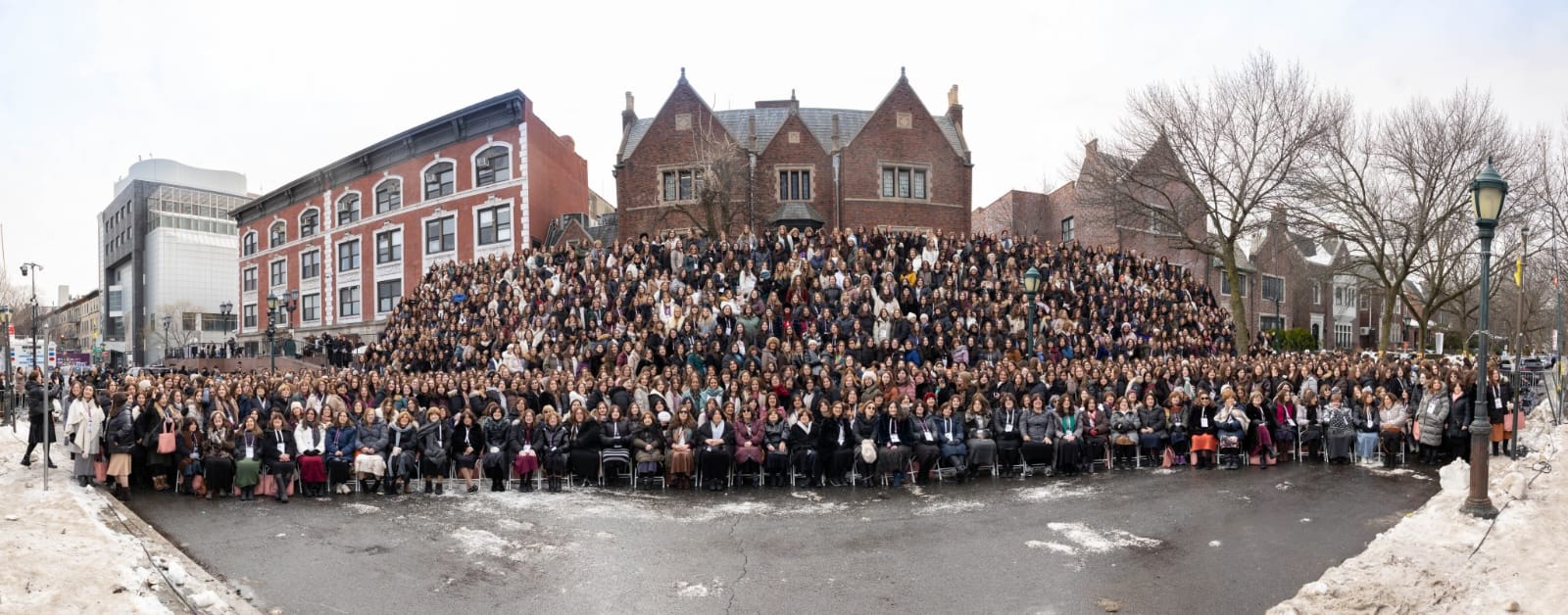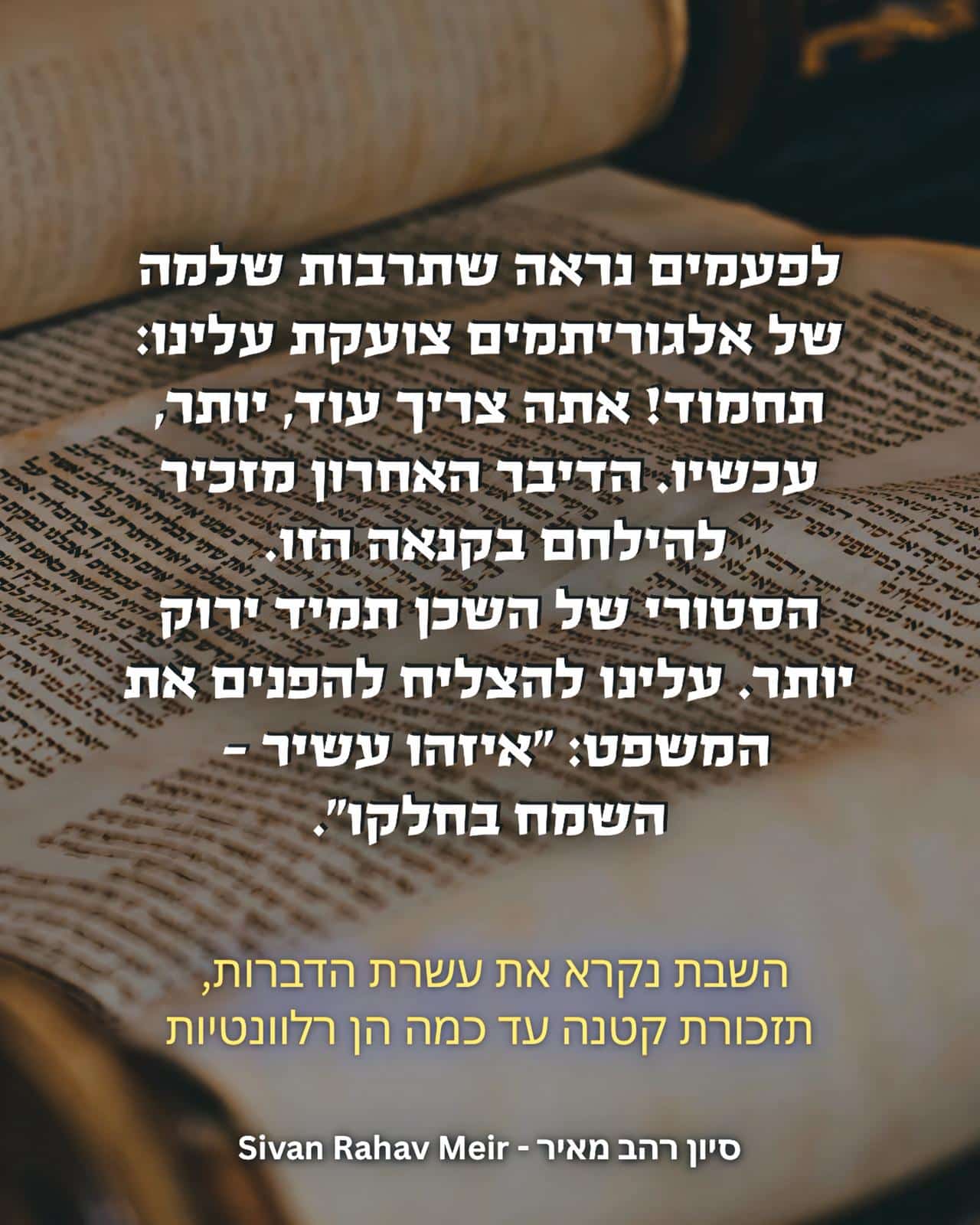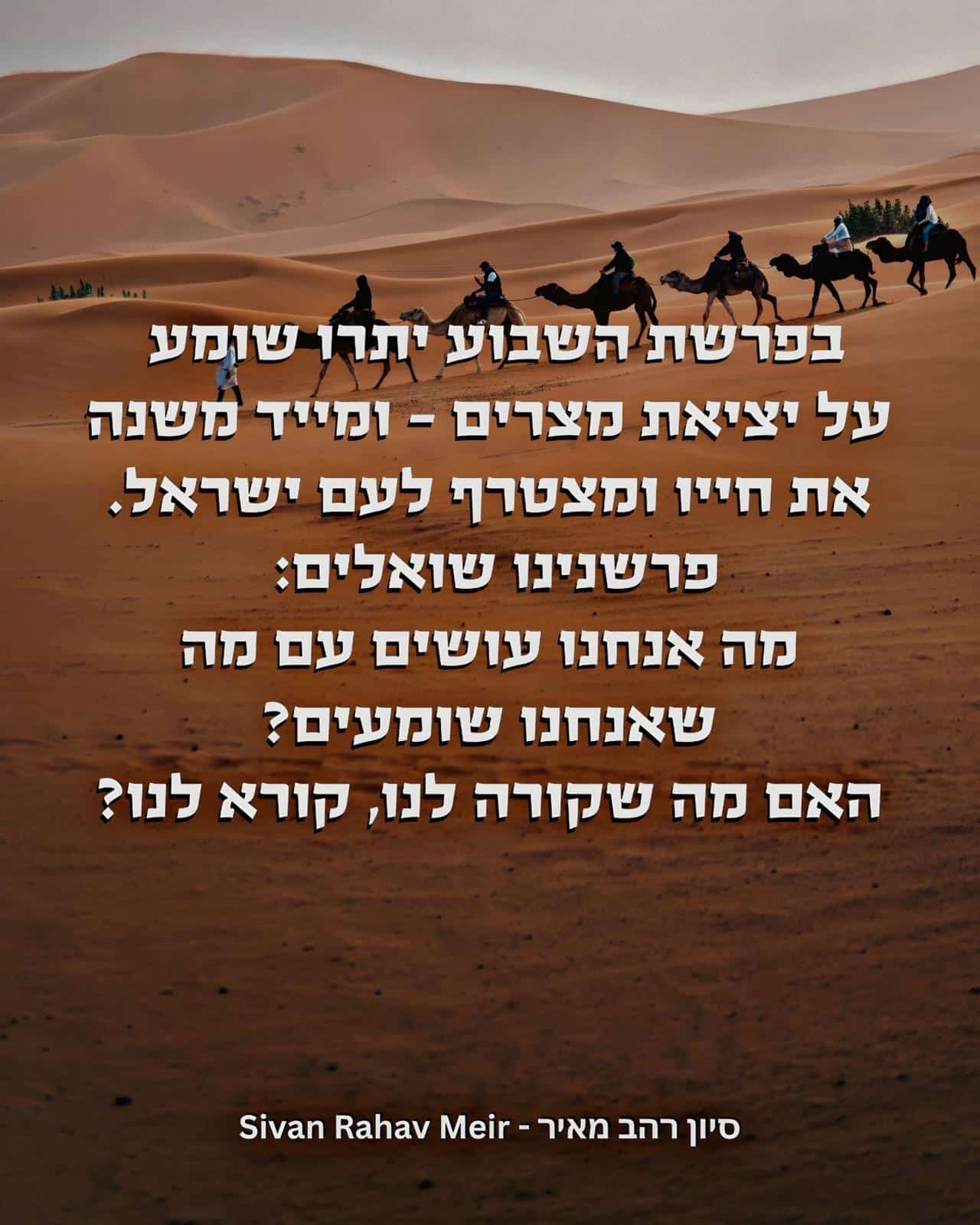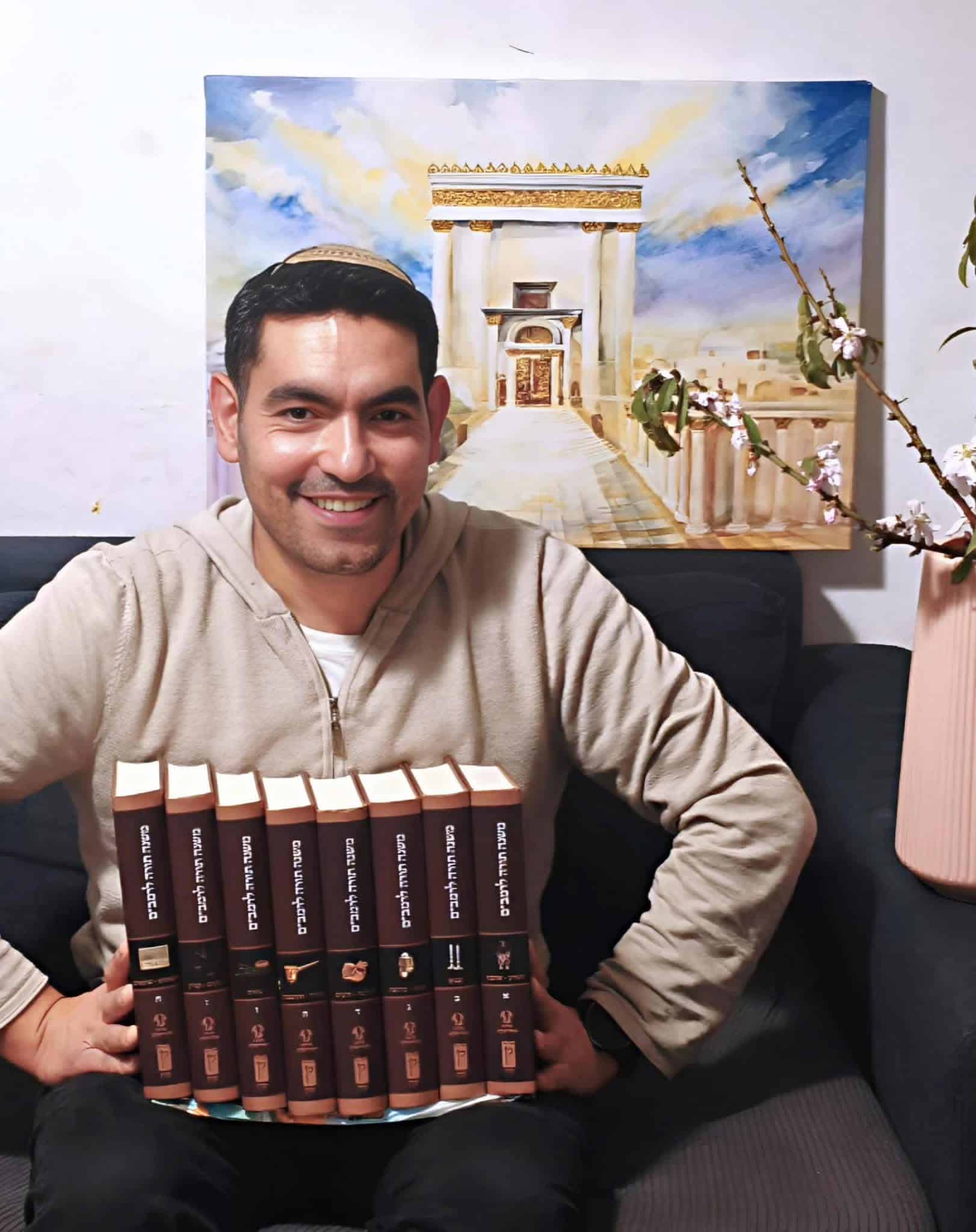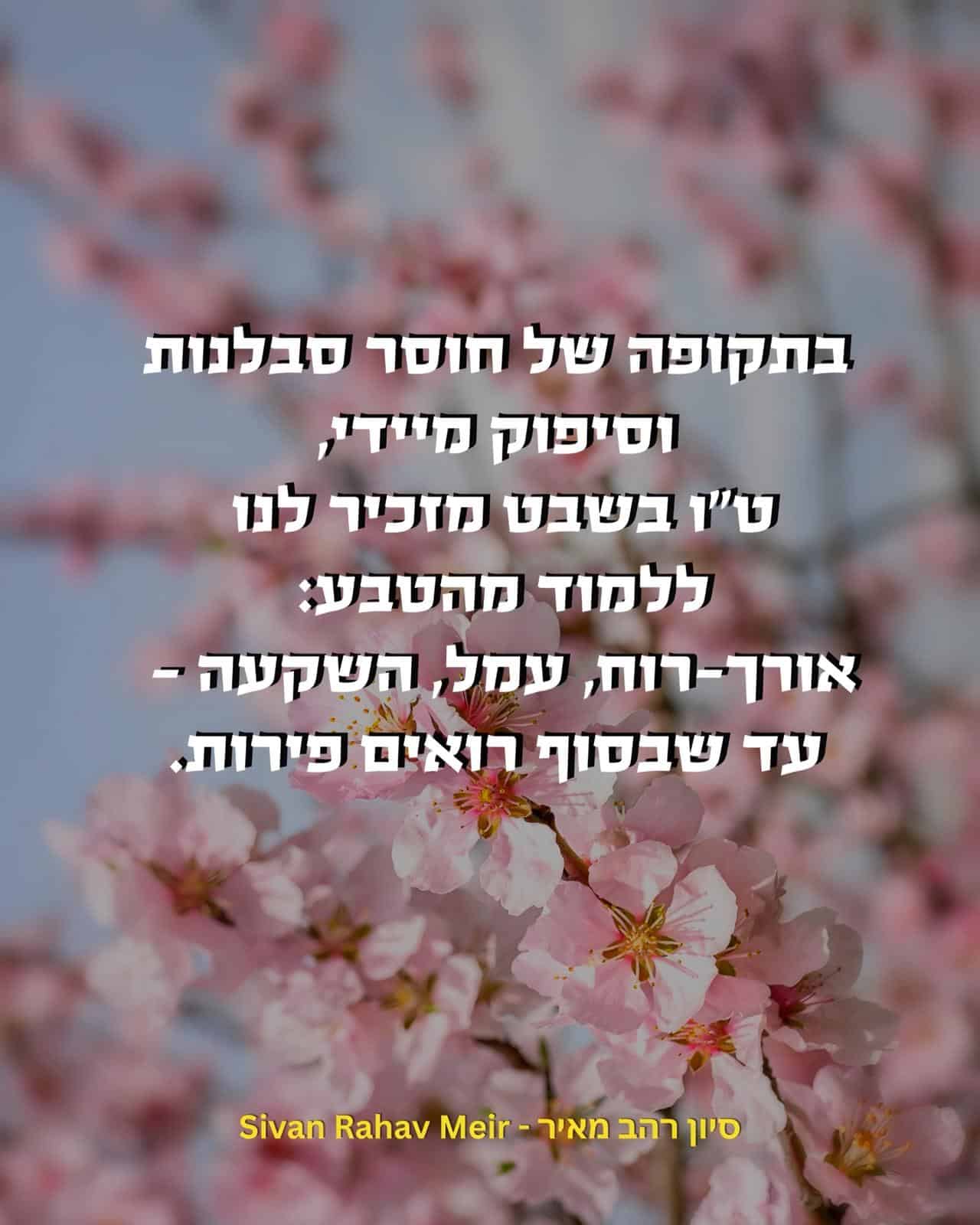What should we call our new Jewish era?
* Translated by Janine Muller Sherr
1. It seems to be the dawning of a new Jewish era, and I’m trying to find an appropriate name for it. On the surface, it seems like everything is carrying on in its usual way; the political commentators continue to express their views with authority and expertise, yet there is the sense that beneath it all a significant and surprising story - with dramatic highs and lows - is beginning to unfold.
Last week, I went to Kfar Chabad to attend the birthday party of Bracha Shilat, who invited women from across the religious spectrum to participate in a special celebration. The dancer Leah Yanai, sister of Moran Stella Yanai who was kidnapped from the Nova festival, also took part. Leah spoke about what she has experienced since October 7. She opened her address with these words:
“On October 7, our lives expanded dramatically. We witnessed darkness the depths of which we had never seen before, but we also saw tremendous light. I’ve written down four insights that I gained from this period (which she read from her cell phone):
First of all, faith. Pure prayer. A recognition that there is so much that we don’t understand and so much that lies beyond our physical reality (world).
Secondly, gratitude.”
At this point, people in the audience were confused: How can the sister of someone who was kidnapped be grateful?
So Leah explained, “I feel grateful for this difficult test and that it ended the way that it did. This sobering experience was an awakening which led to my third insight—a sense of mission. A person who undergoes a shattering experience must not return to their original comfort zone. They have been tasked with a mission, and when they carry out that mission their spirit is lifted and their soul begins to heal.
And fourth, unity. Over the course of this crazy journey, I’ve discovered that the Jewish people are unbreakable. We are a holy nation.”
It’s not every day that a judge on an Israeli reality tv show delivers such stirring and uplifting words that a Bais Yaakov teacher approaches her afterward and asks if she could quote her…
2. Here are some more examples. The story of Agam Berger which is familiar to many people. But dozens of other hostages have related the same exact story. You just need to listen.
interviewed released hostage Elia Cohen and this is what he told me:
“I could feel every prayer that you prayed on my behalf. Every mitzvah that you performed for my sake gave me strength. I could actually feel it in my body.”
Ohad Ben Ami, another released hostage, recently said to Avi Ohana, father of hostage Yosef Chaim Ohana: “I’m a kibbutznik and I’m telling you to keep on praying. We felt your prayers while in captivity.”
Omer Shem Tov surprised the Jewish world by speaking about his special connection with God. Omer’s mother, Shelly, told me this week that Haredi schools outside Israel presented a clip from a television program in which Omer speaks about how, while in captivity, he asked God how He was feeling, in other words, how he connected to the “pain of the Shechinah- the divine presence,” which is a deep Kabbalistic concept. Then he would express his gratitude to God, and only after that, would he pray for what he needed.
Edan Alexander’s grandmother surprised the worldwide press this week when she chose, upon his release, to recite a chapter of Tehillim (Psalms) and to explain the significance of Pesach Sheini, which fell on the day that Edan was released.
Just look into the eyes of Eli Sharabi, who related this week that sometimes when he tells his story to his psychologist, she starts to cry and he needs to comfort her. The audience laughed and cried along with him.
Look at the stickers with pictures of those who have fallen, with their smiling faces and inspiring words, and realize the power of this moment.
3. Although the media seems to be following their usual agenda, if you pay close attention, you will notice that people everywhere are changing how they speak. This is true not only for the released hostages and other famous people, but for people throughout the Jewish world. Beneath the surface, we have discovered that we are connected to one another and influence one another in ways which we didn’t understand before and that this connection is stronger than all the forces that seek to drive us apart. I invite you to share more examples of the powerful unity of the Jewish people and of the new Jewish era in which we are living today.
Behar-Bechukotai: don’t let things slip
* Translation by Yehoshua Siskin
This week’s Torah portion tells the story of someone whose financial situation begins to falter. "You must support him,” the Torah admonishes us. Rashi explains that we must extend our assistance to such a person immediately and not wait until he becomes destitute.
Rashi compares this situation to that of a load that is slipping from a donkey. When the load begins to slip, a single person can easily stabilize it. But once it has fallen to the ground, not even five people will be put it back.
The principle involved here is not only relevant to a financial setback that requires immediate attention. In medicine, for example, early detection of physical illness or emotional distress is critical to successful treatment. This is also true with problems in a marriage or among teenagers who begin to go astray. Do we address these problems when they first arise or wait until a crisis develops?
This principle can also be applied to our enemies and to what happened on October 7th. For years, we ignored areas where our vigilance was slipping until disaster struck.
May we detect problems early — in every aspect of life — and solve them at once.
More stories about our hidden Jewish unity
Yesterday I wrote about the special hidden bond between Jews, the unity that has been steadily revealing itself. Today I would like to share two more stories about this remarkable bond:
Brody, a young man from Boston, came on a recent visit to Israel. While in Israel, he visited the Cave of Machpela, accompanied by Mordechai Hellinger, who also helped him put on tefillin for the first time in his life. Mordechai told him about Captain Ori Shani, a local resident, who fell in a courageous battle on October 7th. When Brody heard about Ori’s extraordinary personality, he was so touched that he decided to continue putting on tefillin every day in his memory. He quickly ran to the adjacent store, Tefillin Chevron, to purchase a pair of tefillin for himself.
Yehoshua Shani, Ori’s father, received a phone call about how Ori had touched the soul of a young Jew from Boston, along with a photo of a student he doesn’t know who started putting on tefillin “in the merit of your son.”
At the same time the above story took place, Rivka Moshel was sitting with her son Yoni in the intensive care unit of Shaarei Tzedek hospital. Yoni was critically injured in a car accident which his family believes was a vehicle-ramming terrorist attack. Rivka’s family came on aliyah from the U.S., and this past week she told her friend in America how Yoni had never missed a day of putting on tefillin since his bar mitzvah, but cannot do so now as he is connected to various machines due to his critical condition.
The next day, she too received a surprising message: “Hi, I’m Steve, an American student. I just heard from your friend about Yoni. I don’t know how to put on tefillin and can’t remember the last time I did so, but I’ve decided to start again—for Yoni’s sake. Every day I will send you a selfie of me wearing my tefillin.
Rivka’s mother sent me the pictures she receives every morning. “These pictures are oxygen for me,” she says. (Please pray for the refuah sheleima of Yoni ben Shayna Rivka).
These are not fairy tales. In the attached photos, you can see the pair of tefillin purchased in Chevron, and one of Steve’s daily updates. While these two stories will not make the headlines, if they would, their title would be: “Jewish nation getting stronger and growing closer.”
